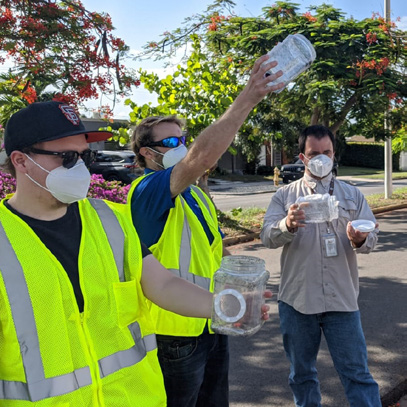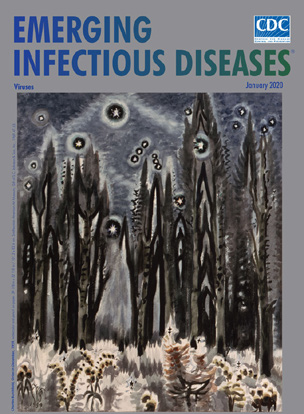Notable work that flew beneath the radar in 2020
On responding to COVID-19

“The COVID-19 response has been incredibly challenging — from its toll on human life to the incredible stress it has placed on every aspect of our society. Despite that adversity, I’ve been privileged to have worked with many different people in the states, local jurisdictions, and federal agencies while deployed and while working in the CDC Emergency Operations Center. During the largest, most complex public health response of our lifetimes, their dedication and commitment to helping mitigate and end this pandemic has been incredibly heartening.”
Medical Officer Satish Pillai, NCEZID
A novel way to reduce mosquito populations

NCEZID staff are working with partners in Puerto Rico to release male mosquitoes with Wolbachia bacteria to evaluate how effective the technique is in reducing Aedes aegypti mosquitoes. These mosquitoes spread viruses including dengue, Zika, and chikungunya. An added benefit is that Wolbachia bacteria are not harmful to people or animals and are found in half of all insects, but not Ae. aegypti mosquitoes. When male mosquitoes with Wolbachia mate with wild females, their eggs will not hatch. Communities in Texas and California that have released mosquitoes with Wolbachia have reported a significant drop in the number of Ae. aegypti mosquitoes.
A significant birthday for a significant publication

Emerging Infectious Diseases, an open access, peer-reviewed journal published monthly by CDC, marked its 25th year of publication in 2020. As COVID-19 spread around the world, EID’s mission to promote the recognition of new and reemerging infectious diseases became even more urgent and focused. EID received a record number of submissions (4,750+), published more articles and more pages than during any previous year in its history, and saw its site visits peak at more than 3,500,000 in the spring before settling to about a million visits each month.
One Health looks for connections between animal and human health

In 2020, CDC’s One Health experts have been working to learn more about how SARS-CoV-2 (the virus that causes COVID-19) affects animals. One Health is also looking at the possible role that animals play in the spread of this virus. A One Health approach recognizes the close connection between the health of people, animals, and the environment and the role of this connection in the emergence of new diseases like COVID-19. For the COVID-19 response, CDC created the One Health Federal Interagency COVID-19 Coordination Group to help 18 federal agencies coordinate activities related to the One Health aspects of COVID-19.
